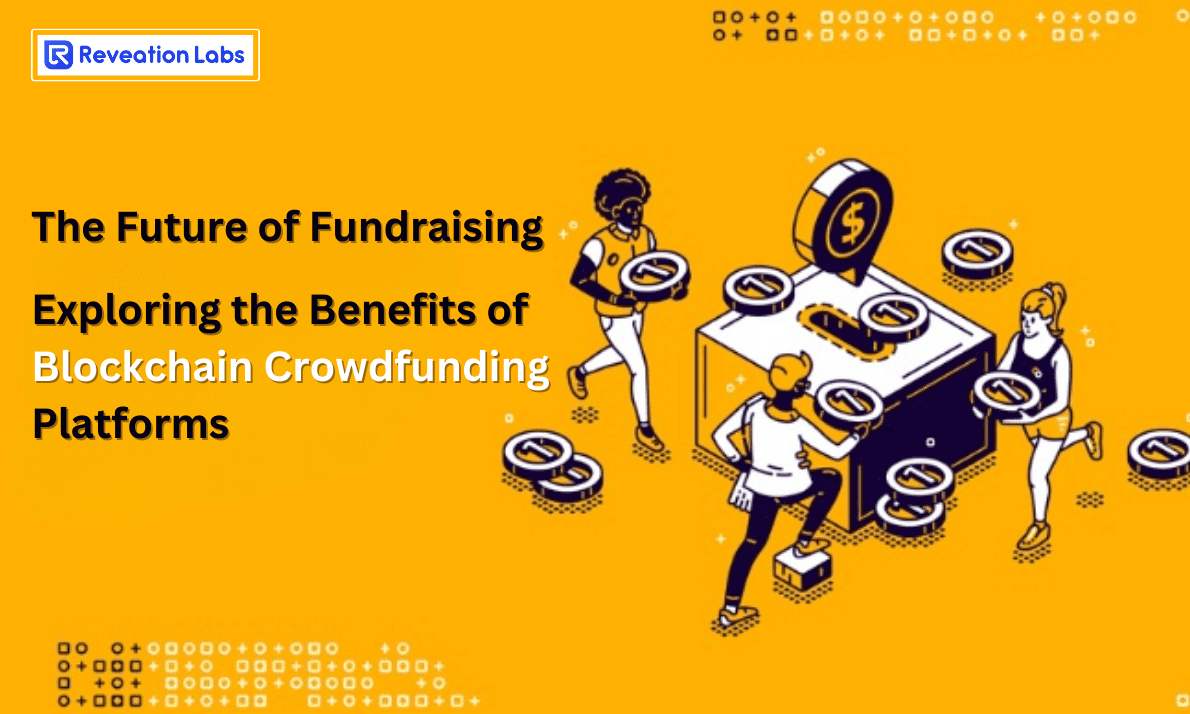In the fast-paced world of crowdfunding, the integration of artificial intelligence (AI) has become increasingly prevalent. From improving campaign success rates to providing personalized recommendations, AI offers a wealth of benefits to both project creators and backers. However, it is not without its drawbacks. In this article, we will explore the various advantages and disadvantages of utilizing AI in the realm of crowdfunding, shedding light on how this powerful technology can shape the future of fundraising initiatives.
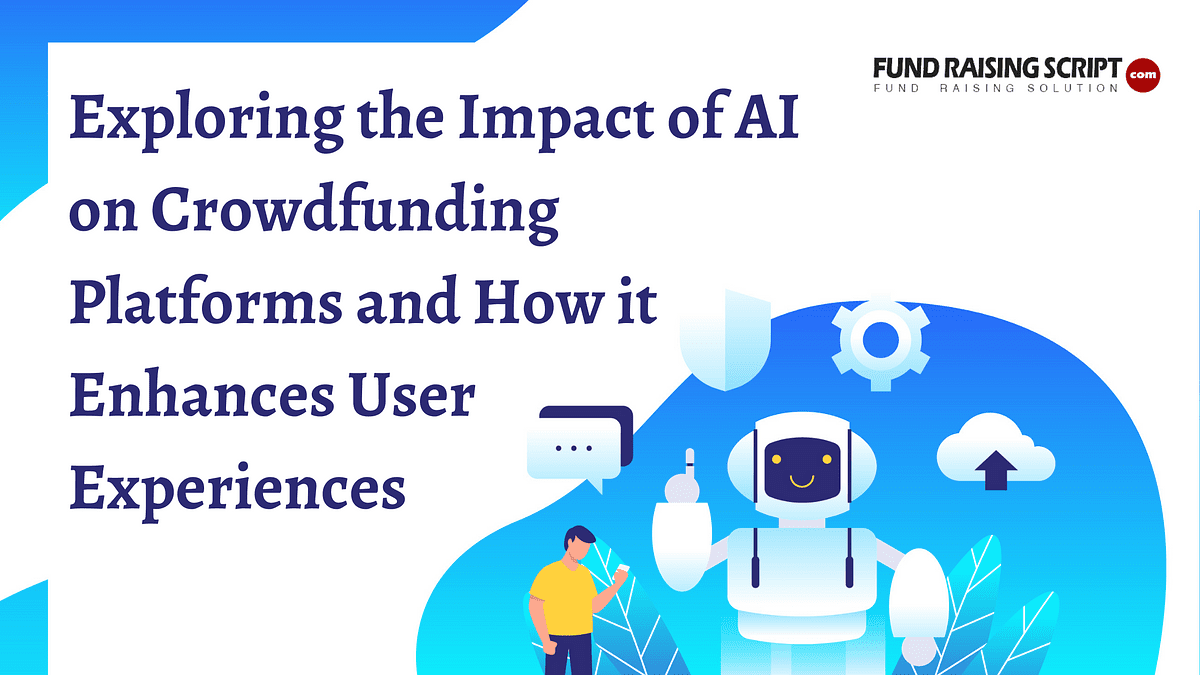
This image is property of miro.medium.com.
Benefits of AI in Crowdfunding
Increased Efficiency and Automation
One of the major benefits of AI in crowdfunding is the increased efficiency and automation it brings to the process. With AI-powered algorithms and predictive models, crowdfunding platforms can analyze large amounts of data and identify potential trends and opportunities. This not only saves time but also allows for more accurate decision-making. AI can automate many aspects of the crowdfunding process, such as campaign management, customer support, and fraud detection, allowing platform operators to focus on other important tasks.
Improved Decision-making
AI plays a crucial role in improving decision-making in crowdfunding. By leveraging data-driven investment decisions, AI can help identify the most promising projects and allocate resources accordingly. Through risk assessment and mitigation, AI can evaluate the potential risks associated with a crowdfunding campaign, enabling investors to make more informed choices. Moreover, AI helps optimize campaign strategies by analyzing user behavior and preferences, allowing creators to tailor their campaigns to attract the right audience and maximize their chances of success.
Enhanced User Experience
AI also enhances the user experience in crowdfunding platforms. Through personalized product recommendations, AI algorithms can suggest projects and campaigns that align with users' interests and preferences. This not only increases engagement but also improves the chances of users finding projects they are genuinely interested in supporting. Additionally, tailored reward systems can be implemented with the help of AI, ensuring that backers receive rewards that are relevant and meaningful to them. Real-time customer feedback, facilitated by AI, allows creators to gather insights and improve their offerings based on direct input from the users.
Drawbacks of AI in Crowdfunding
Lack of Personalization
One of the drawbacks of AI in crowdfunding is the potential lack of personalized experiences. Standardized algorithms and recommendations may not take into account the unique preferences and needs of individual users. While AI algorithms can analyze large amounts of data and make educated suggestions, they may not fully understand the nuances and subtleties that make each user different. This lack of personalization can result in users feeling disconnected and less engaged with the crowdfunding platform.
Potential Bias and Discrimination
Another drawback of AI in crowdfunding is the potential for bias and discrimination. AI algorithms are trained using historical data, which may contain biases and reflect societal prejudices. If not properly addressed, this can lead to discriminatory outcomes, where certain projects or creators are favored or disadvantaged based on factors such as race, gender, or socioeconomic background. It is critical to ensure that AI models and algorithms are designed with fairness and inclusivity in mind and regularly monitored to detect and mitigate any biases that may arise.
Loss of Human Touch
While AI brings numerous benefits to the crowdfunding process, there is a concern about the loss of the human touch. Crowdfunding is often driven by personal connections and emotional engagement between creators and backers. With increased automation and AI-powered processes, there is a potential decline in the direct human interaction that made crowdfunding special. It is important to strike a balance between efficiency and personal interaction to maintain the sense of community and emotional connection that has been a hallmark of crowdfunding.
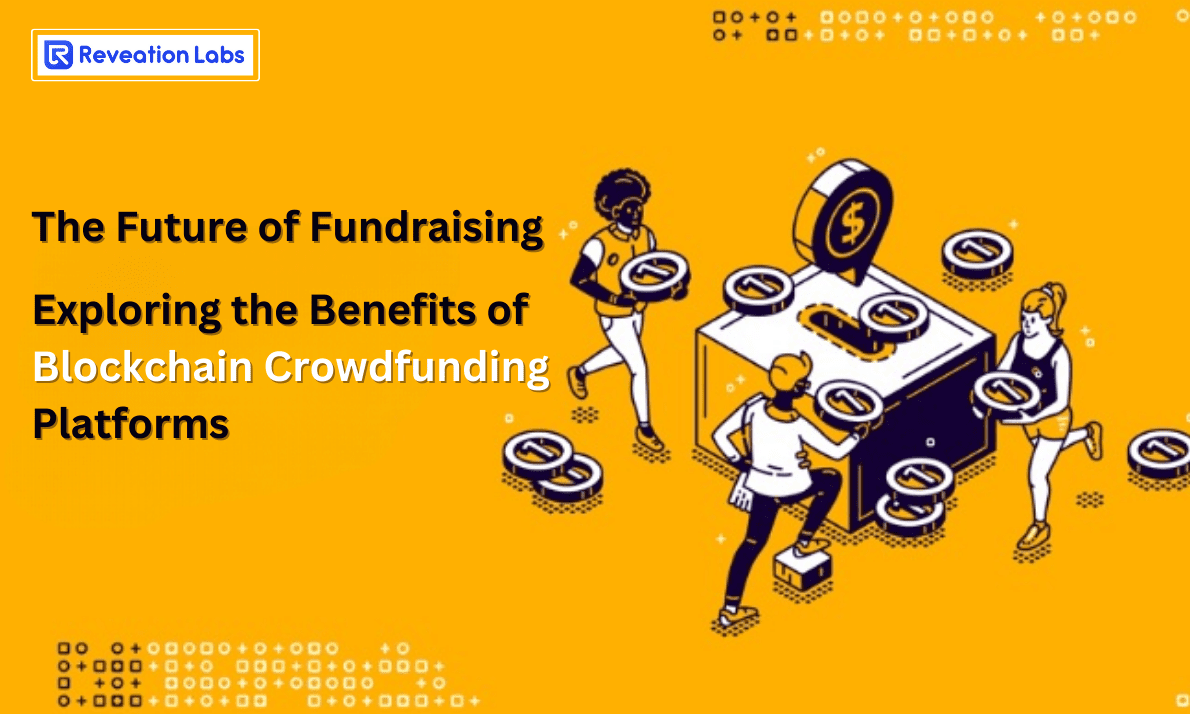
This image is property of www.reveation.io.
How AI Enhances Efficiency and Automation
Data Analysis and Predictive Models
With the help of AI, crowdfunding platforms can effectively analyze vast amounts of data. AI algorithms can identify market trends, assess the viability of projects, and predict campaign success based on historical data. This analysis enables platform operators to make informed decisions and allocate resources efficiently, saving time and effort. By automating the data analysis process, AI eliminates the need for manual evaluation and allows for quicker and more accurate decision-making.
Automated Customer Support
AI-powered customer support plays a significant role in improving the efficiency of crowdfunding platforms. AI chatbots and virtual assistants can provide 24/7 assistance, answering common queries and providing resolutions to common issues. These AI-powered assistants can handle high-volume queries simultaneously, reducing the burden on human customer support agents. Quick and efficient customer support not only enhances the user experience but also allows platform operators to focus on more complex and specialized tasks.
Fraud Detection and Prevention
Fraud is a major concern in crowdfunding, and AI can help address this issue effectively. AI algorithms can detect patterns and anomalies in user behavior, enabling the early identification of potentially fraudulent activities. By analyzing data from multiple sources and comparing it against established patterns, AI can flag suspicious transactions or campaigns, reducing the risk of fraud. The use of AI in fraud detection and prevention ensures a safer environment for both creators and backers, increasing trust and confidence in the platform.
The Role of AI in Decision-making
Data-driven Investment Decisions
Investing in crowdfunding projects can be a daunting task, but AI can assist in making data-driven investment decisions. By analyzing historical data and identifying patterns of success, AI algorithms can help investors identify projects with higher chances of achieving their goals. AI-powered platforms can provide data-backed projections and performance indicators, allowing investors to evaluate the potential returns and risks associated with each project. This data-driven approach not only enhances decision-making but also increases the chances of successful investments.
Risk Assessment and Mitigation
AI plays a vital role in assessing and mitigating risks in crowdfunding campaigns. By analyzing various factors such as project details, creator reputation, and market conditions, AI algorithms can evaluate the potential risks associated with a campaign. Platforms can use AI-powered risk assessment tools to identify red flags, such as unrealistic funding goals or misleading project descriptions. This enables both creators and backers to make informed decisions and avoid projects with a higher likelihood of failure or non-completion.
Optimization of Campaign Strategies
AI algorithms can analyze user behavior and preferences to optimize campaign strategies. By understanding user demographics, interests, and engagement patterns, AI can suggest tailored approaches to attract the right audience. AI-powered platforms can provide recommendations on campaign duration, funding goals, and marketing strategies based on comprehensive data analysis. This optimization ensures that creators can tailor their campaigns to reach the intended audience effectively and improve their chances of success.
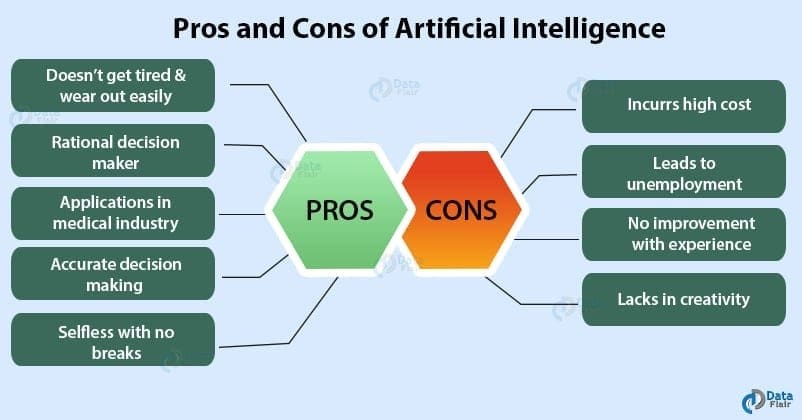
This image is property of data-flair.training.
Improving User Experience through AI
Personalized Product Recommendations
AI algorithms can provide users with personalized product recommendations, enhancing their crowdfunding experience. By analyzing users' browsing history, backed projects, and preferences, AI can suggest projects that align with their interests and increase their chances of discovering campaigns they would be genuinely interested in supporting. Personalized recommendations not only improve user engagement but also contribute to the overall success of crowdfunding campaigns by connecting creators with their target audience more effectively.
Tailored Reward Systems
AI can help implement tailored reward systems in crowdfunding platforms. By analyzing user behavior, contribution history, and preferences, AI algorithms can suggest reward tiers and incentives that are appealing and meaningful to individual users. This personalization ensures that backers feel recognized and rewarded for their support, increasing their satisfaction and likelihood of future participation. AI-powered platforms can automatically adjust reward offerings based on user engagement, ensuring a dynamic and tailored experience for each backer.
Real-time Customer Feedback
Collecting real-time customer feedback is essential for improving the user experience in crowdfunding. AI can facilitate this process by automating the gathering and analysis of feedback from users. From sentiment analysis of comments and reviews to interpreting feedback patterns, AI algorithms can extract valuable insights that can guide creators in improving their campaigns and offerings. Real-time customer feedback enables creators to make timely adjustments and improvements, ensuring that user concerns and preferences are addressed promptly.
The Lack of Personalization in AI-driven Crowdfunding
Standardized Algorithms and Recommendations
While AI algorithms excel at analyzing data and making recommendations, there is a risk of lack of personalization. Standardized algorithms tend to focus on general trends and patterns, which may not fully capture individual users' preferences and needs. This can result in users receiving recommendations that are not truly aligned with their interests or expectations. To address this issue, AI algorithms need to be designed with the capability to adapt and learn from individual user behavior, ensuring a more personalized and relevant crowdfunding experience.
Inability to Understand Individual Needs
AI algorithms may struggle to understand the nuances of individual users' needs and motivations. While they can analyze large amounts of data, they may not be able to grasp the subjective preferences and emotions that drive human decision-making. This can lead to a lack of understanding when it comes to individual backer expectations, potentially resulting in a less satisfactory experience. To overcome this limitation, AI algorithms should be refined to incorporate more comprehensive data sources and consider the emotional aspects of user engagement.
Reduced Emotional Connection
The human touch is an integral part of crowdfunding, and the increased use of AI may diminish the emotional connection between creators and backers. AI-powered platforms may neglect the personal interactions and storytelling that often form the basis of successful crowdfunding campaigns. The absence of direct human engagement can make the crowdfunding experience feel impersonal and transactional. To maintain the emotional connection, AI-powered platforms should strive to integrate personalizations that enhance the sense of community and foster meaningful connections between creators and backers.
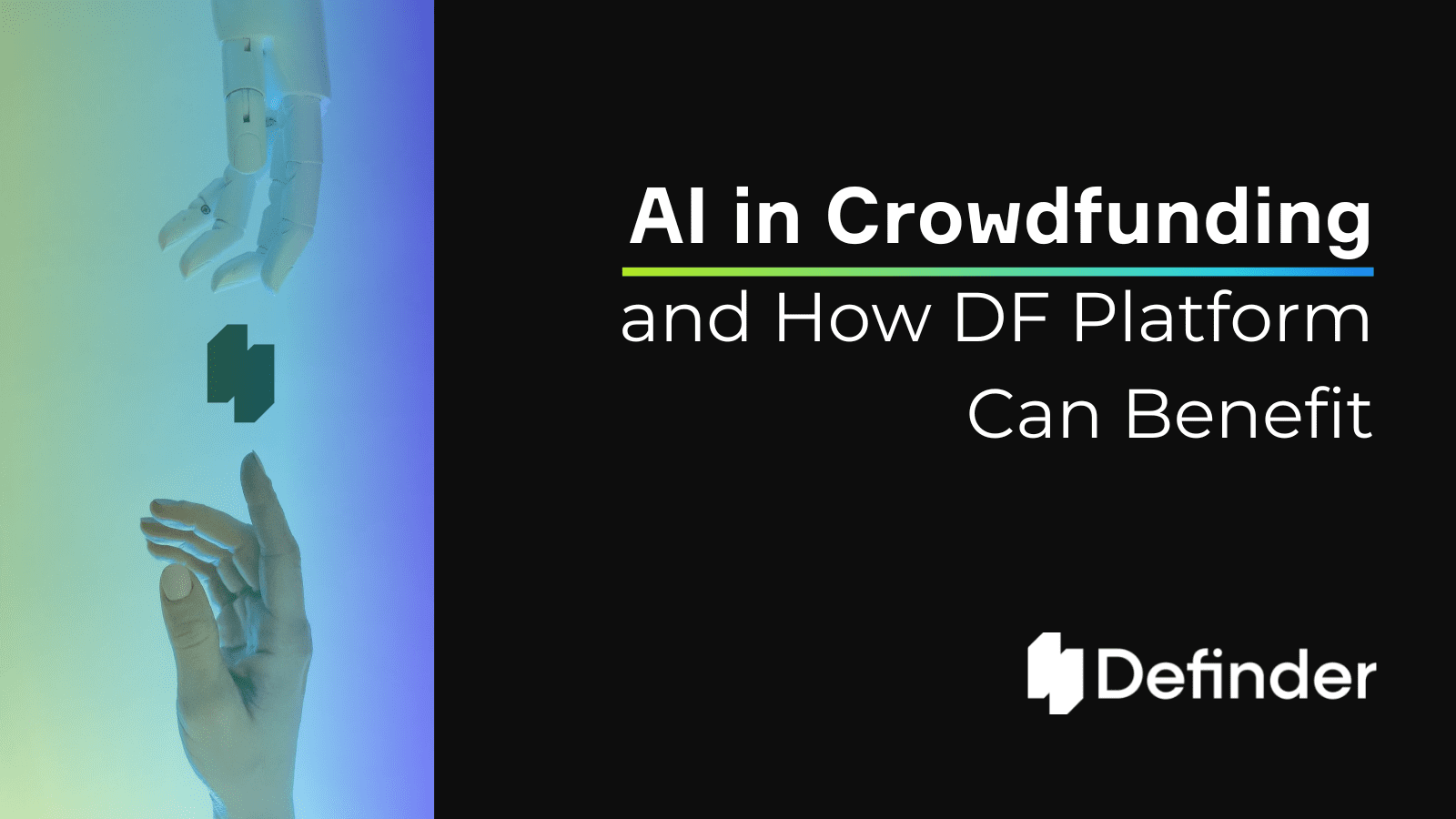
This image is property of definder.global.
Addressing Potential Bias and Discrimination in AI-driven Crowdfunding
Training Bias in Machine Learning Models
One of the challenges in AI-driven crowdfunding is the potential for biases to be reinforced or perpetuated through machine learning models. If historical data used to train AI models contains biases and discriminatory patterns, the resulting algorithms may inadvertently perpetuate those biases. To address this issue, it is essential to carefully review and preprocess training data to minimize biases. Regular monitoring and evaluation of AI models can help identify potential biases and ensure that they are addressed promptly to promote fair and inclusive crowdfunding platforms.
Ethical Considerations in Data Collection
AI relies on significant amounts of data to function effectively, which raises ethical concerns regarding privacy and consent. Crowdfunding platforms must prioritize user privacy and ensure transparent data collection practices. Users should have control over the data they provide and have clear information about how their data will be used. Transparent communication and obtaining explicit consent are crucial to ensure that user data is handled ethically and responsibly in AI-driven crowdfunding contexts.
Fairness and Inclusivity Challenges
AI algorithms must be designed and implemented with fairness and inclusivity in mind. Crowdfunding platforms should consistently evaluate the impact of AI decision-making on different groups to identify and mitigate any biases or discriminatory outcomes. It is essential to ensure that algorithms do not favor or disadvantage certain projects or creators based on factors such as race, gender, or socioeconomic background. Regular audits and diversity assessments can help platforms maintain a fair and inclusive environment for all participants.
Maintaining Human Touch in AI-powered Crowdfunding
Building Trust and Human Relationships
To maintain the human touch in AI-powered crowdfunding, platforms should focus on building trust and fostering human relationships. Open and transparent communication is essential in providing reassurance to both creators and backers. Regular updates and engagement from creators can create a sense of community and foster meaningful relationships. Similarly, backers should have opportunities to establish connections with creators through personalized interactions, ensuring that the crowdfunding experience remains personal and engaging.
Balancing Automation and Personal Interaction
While automation brings efficiency, it is crucial to strike a balance between automation and personal interaction in AI-powered crowdfunding. While AI algorithms can handle repetitive tasks and provide quick responses, it is important not to rely solely on automation. Platforms should prioritize providing channels for direct communication and engagement between creators and backers. This can be through personalized messages, live chats, or video interactions. Balancing automation with personal interaction ensures that the human element is preserved and valued throughout the crowdfunding process.
Ensuring Transparency and Accountability
Transparency and accountability are key in maintaining the human touch in AI-powered crowdfunding. Platforms should clearly communicate how AI is utilized and its impact on decision-making processes. Creators and backers should have access to information about the algorithmic processes driving the platform and any factors that influence project recommendations or campaign outcomes. Enforcing transparency and establishing mechanisms for accountability can help foster trust, ensuring that all participants feel valued and connected within the crowdfunding ecosystem.
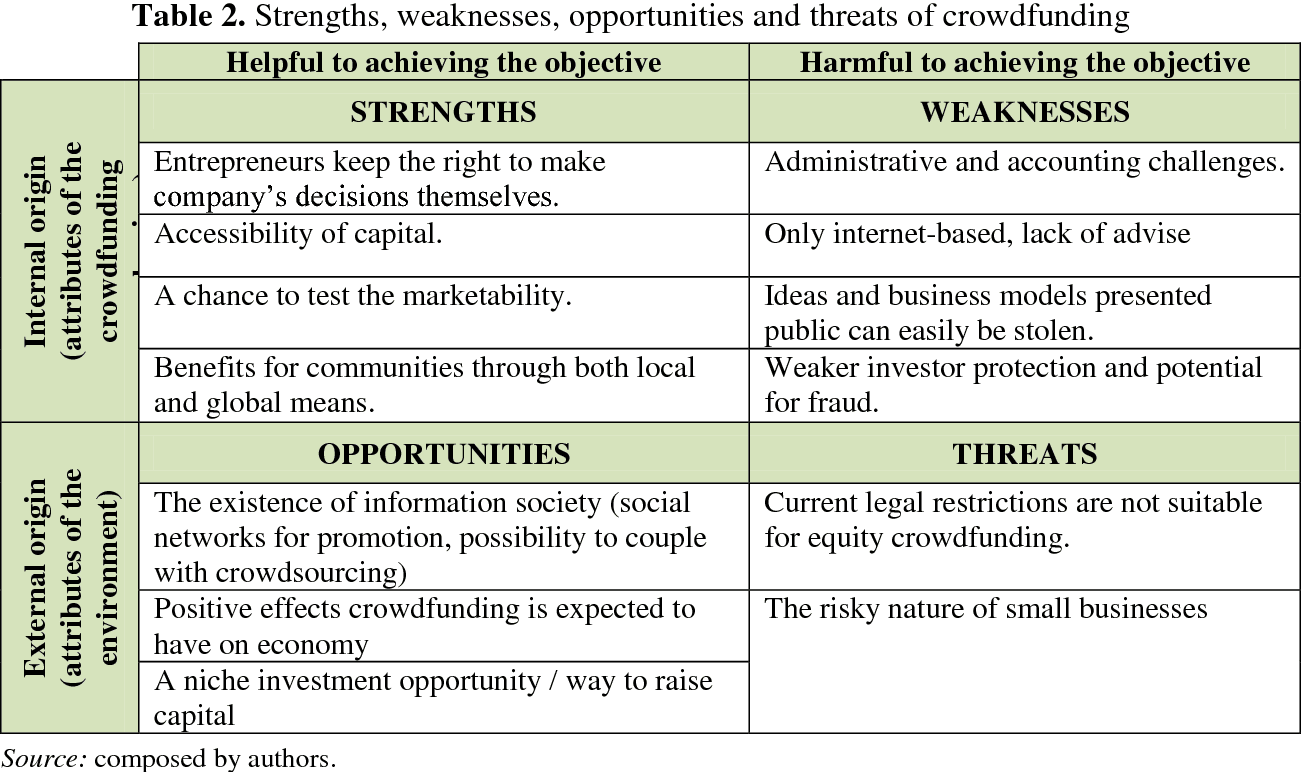
This image is property of d3i71xaburhd42.cloudfront.net.
The Role of Data Analysis in AI-driven Crowdfunding
Identifying Market Trends and Opportunities
Data analysis is essential in AI-driven crowdfunding platforms to identify market trends and opportunities. AI algorithms analyze large amounts of data, such as user behavior, engagement patterns, and project performance, to identify emerging trends and areas of interest. Platforms can leverage this information to inform creators and backers about upcoming market trends and help them make informed decisions in their campaigns and investments. This data-driven approach enhances the chances of success and fosters a dynamic and evolving crowdfunding environment.
Optimizing Pricing and Valuation
AI-driven data analysis can optimize pricing and valuation strategies in crowdfunding campaigns. By analyzing market conditions, user sentiment, and backer preferences, AI algorithms can suggest appropriate pricing for reward tiers and determine the valuation of projects. This ensures that creators set realistic funding goals and offer rewards that resonate with backers, leading to higher levels of engagement and funding success. AI-driven pricing and valuation strategies improve the overall efficiency and effectiveness of crowdfunding campaigns.
Evaluating Campaign Success
Data analysis plays a crucial role in evaluating the success of crowdfunding campaigns. AI algorithms can track and analyze various metrics, such as funding progress, backer engagement, and campaign reach, to provide creators with valuable insights into their campaign's performance. This analysis enables creators to make data-driven adjustments and refinements to their campaigns, increasing the chances of success. Evaluating campaign success through data analysis ensures continuous improvement and empowers creators to adapt their strategies for future crowdfunding endeavors.
Automated Customer Support in Crowdfunding
24/7 Assistance and Resolution
AI-powered customer support offers 24/7 assistance and resolutions to crowdfunding participants. Through AI chatbots and virtual assistants, users can access support and have common queries answered at any time of the day. This round-the-clock availability ensures that users receive timely assistance and feel supported throughout their crowdfunding experience. By automating customer support, platforms can handle a high volume of queries simultaneously, minimizing wait times and improving the overall satisfaction of users.
Effective Engagement and Communication
Automated customer support in crowdfunding platforms ensures effective engagement and communication between platforms and users. Chatbots and virtual assistants equipped with AI capabilities can respond promptly and accurately to user inquiries, providing the necessary information or directing them to relevant resources. This efficient communication streamlines the user experience, avoiding potential frustrations caused by delayed or incomplete responses. Automated customer support enables crowdfunding platforms to maintain effective engagement and communication with users, ensuring a positive user experience.
Handling High-volume Queries
AI-powered customer support is particularly valuable in handling high-volume queries in crowdfunding. During peak periods or campaigns with significant participant engagement, platforms may experience a surge in user queries and requests. AI-driven customer support can handle multiple queries simultaneously, significantly reducing the workload on human agents. By promptly addressing user queries and resolving issues in a timely manner, AI-powered customer support ensures efficient service delivery even during peak activity periods, enhancing the overall user experience in crowdfunding platforms.
In conclusion, AI brings numerous benefits to crowdfunding, including increased efficiency and automation, improved decision-making, and enhanced user experience. However, it is important to be aware of the potential drawbacks, such as lack of personalization, potential bias and discrimination, and the loss of the human touch. By understanding both the benefits and drawbacks and addressing the associated challenges, AI can be effectively harnessed to optimize and improve the crowdfunding experience for both creators and backers. With careful consideration and ethical implementation, AI has the potential to revolutionize the crowdfunding industry and drive innovation in fundraising and project financing.


